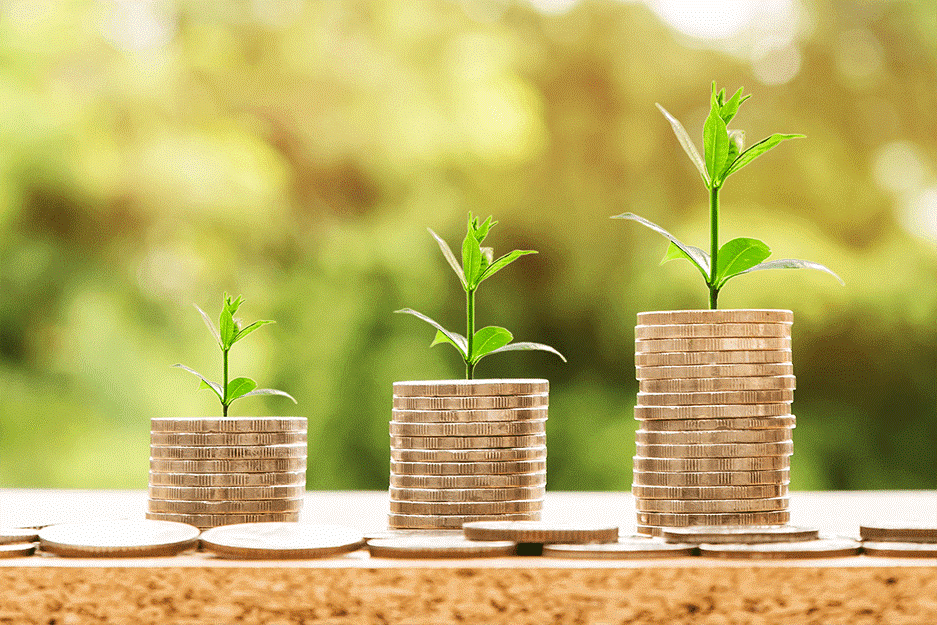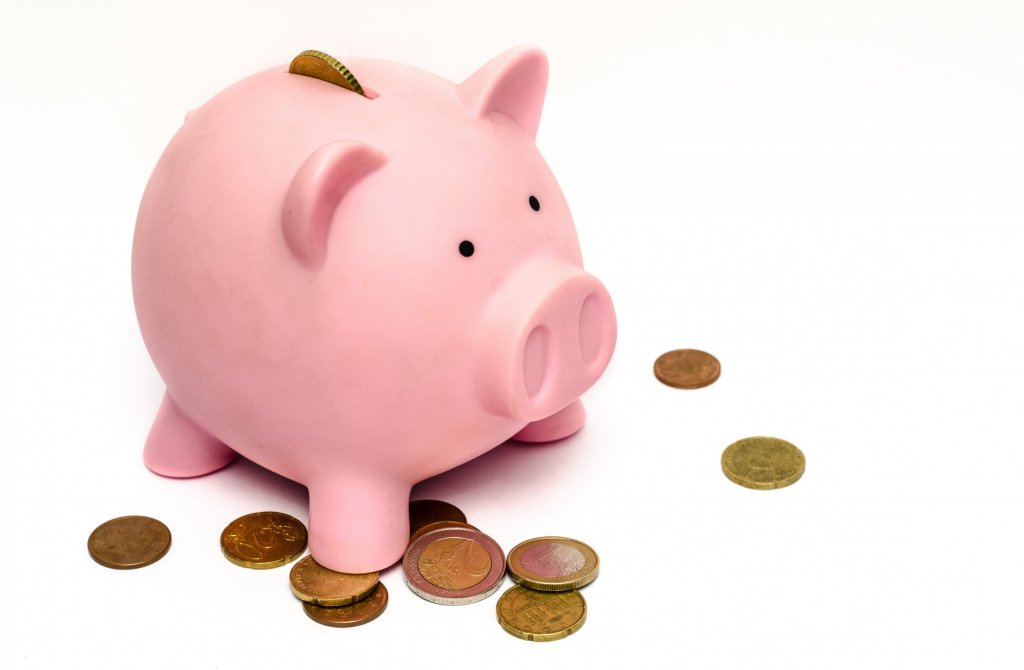
The COVID-19 pandemic has had unprecedented impacts on everyone’s lives. We are seeing an extended period of economic and social uncertainty, and disruption lies ahead. Despite the Government’s economic support package, many Australians are losing their jobs and struggling financially.
Managing your money is more than just knowing how much you have in your bank account; it means watching what you spend and saving what you’re able to. In today’s world, where every transaction can be automated and you’re just one click away from purchasing anything on the internet, sometimes it’s too easy to get caught up in spending and oblivious to keeping track of your money movement. As the result, financial management is trickier than ever before. That’s why financial literacy is vitally important – it equips us with the knowledge and skills we need to manage money effectively. Yet, many individuals lack this basic knowledge and cannot meet their daily expenses, let alone deal with this global Coronavirus crisis.
Although the risks of this crisis are new, the idea of a crisis affecting people’s finances is not. The reality is that we will all live through multiple events that have the potential of impacting our finances. So, here are 5 lessons we all should learn from COVID-19 to become more financially literate:

1. Have a financial plan
Managing your money is like controlling what you eat – It requires commitment, determination and discipline. Have you ever thought to yourself “This will be my last chocolate cake. I’ll start my diet from tomorrow” and you never did? It’s a bit like during a time of economic growth, you think that because you are paying your bills, with a little to spare each month, you’re good. But it’s not enough, especially when hit with a blow – like a pandemic!
You need a plan to constantly improve your financial position so that you are prepped to navigate through any challenges ahead. As the saying goes, failing to plan is planning to fail!
You need to set a financial goal now and work towards it. It’s not a thought you save for later. Write down your goals and back them up with a plan. Having it written down means you can reference it, measure it and manage it to keep track of your progress.
“A goal without a plan is just a wish”
– Antoine de Saint Expiry
Contingency planning is an essential part of financial planning. It’s the proactive strategy for risk management. You’re preparing yourself ahead of time for potential negative events. To so this, ask yourself questions like…
What happens if I lose 25% of my income?
What do I do if my expenses go up?
What if I get seriously sick?”
…and come up with responsive actions respectively. Contingency plans put you in an empowered place because they help push away your fear and anxiety of not knowing what to do when a crisis hit.
Also, evaluate how complicated your financial situation is to determine if you need professional advice. Who are you responsible for supporting? What are your debt levels? Do you own a business (or many businesses)? Do you have investments? All of these things add complexity and risk to your financial position, so it’s wise to seek assistance from a financial planner or adviser who can help determine and assess your financial goals, consider your individual circumstances and aspirations, and plan for you to achieve them.
2. Emergency fund is crucial
“If only I had saved more”
If we had a dollar for every time we’ve heard that in recent weeks. COVID-19 has become a typical case study on having an adequate emergency fund. Building an emergency fund and managing your risk is a foundation of a financial plan. An emergency fund is the money you set aside to cover urgent or unexpected costs like job loss, pay cut or major illness. It is your safety net, so you don’t need to borrow money if something happens to you or your family (exposing you to more risk). As a rule of thumb, you should aim for an emergency fund of at least 3 to 6-months’ worth of your living expenses. This includes things like rent or mortgage, bills, debt payments, school fees, health insurance premiums and everyday spending. Remember this is a long-term goal; never an overnight achievement. So depending on your circumstances, prepare yourself to hit your target within 3 to 5 years.
An emergency fund is supposed to be easily accessible, so normally people accumulate it in a savings account. However, many may argue that money in savings accounts generally has low interest rates, not to mention on-going inflation, is a wasted asset. We think of it more like a form of financial insurance. Even if you can only save a little, make a start and keep saving. The more you can regularly save, the better.
3. Manage your debt
During good times, it’s easy to see debt with low interest rates as a great enabler to build wealth and get what you want. However, owing money or falling behind repayments can be stressful. Relying too much on credit cards will put you in a vulnerable position too. While not all debt is bad, the lesson from the pandemic is to keep it light. Light on risk and light on your financial position; so this really depends on our risk profile. The lighter the financial load you must carry, the easier it is to survive as you need not worry about making loan payments when you’re trying to keep your family safe and healthy.
The banks’ response to provide assistance to borrowers has been impressive, however, we should not wait until we are impacted by a crisis to pay attention to our debts. By continually reviewing our loans, terms and interest rates, you can achieve great long-term savings.
Simply contacting your bank and querying your current interest rate or fees on a loan can achieve great results. This does not mean you have to necessarily move the lender. Our financial adviser was able to negotiate a 1% per annum cost reduction for a client simply by asking for the rate to be reviewed. This email to their banking contact saved then $1,000+ in interest repayments each year.
4. Diversify your income
More income streams equal more security. Those who solely rely on one source of income are more vulnerable to the economic downturn than people with multiple streams of income. “With multiple streams of income, you can avoid putting all your eggs in one basket and using several streams of cash to grow rich,” said financial planner Jeff Rose (Forbes).
When considering long-term goals for their finances, most people will include a strategy to grow their wealth over time. With the aim to eventually fund early retirement, additional spending on luxuries or other discretionary goals. For most people, this is a 10+ year timeframe and takes the form of investing in shares or property.
However, during uncertain times, having a long-term nest egg can provide a layer of financial confidence. Consider the ability to build a nest egg over an extended timeframe that can provide passive income to you in times of need. This may be in the form of a property that can deliver a positive cashflow return or a share portfolio that can deliver dividends. Although obtaining this may seem out of reach for most people, it can be achieved over an extended time frame with some financial discipline and a clear strategy.
5. Create a long-term vision
If there’s anything that COVID-19 has made us realise, it’s nothing is certain. Financial upheavals are a normal part of life. That’s why you need to develop a long-term vision to build financial stability.
“When nothing is sure. Everything is possible”
– Margaret Drabble
There’s nothing like a crisis to turn conventional wisdom on its head. When things are going well, it’s so easy to get caught up in the busyness for the day we neglect to take time to think and do what could bring true wealth to our lives. If you found yourself financially underprepared for the coronavirus, isolation is a perfect opportunity to take a break from a busy schedule to sit back and reflect on life and career or business choices. The long term begins now. We need to look through the short-term uncertainty and think about the post-COVID world to build foundations of a stronger and more sustainable future.
What are the things you’re doing during the COVID-19 pandemic that can be continued when it passes?
Many people have been forced to consider how to spend every dollar in their bank accounts and stop the leisure activities we all love, like travelling on holidays, going to the movies, etc. It’s clear that we can all survive without spending and doing as much. I’m not saying paying for entertainment is bad, but the lessons learned from COVID-19 are to have a reasonable spending plan on non-essential things so you can save money and be better off eventually. Being thrifty is a good habit that we’ve been forced into because of the shutdowns. So, keep your financial focus on your long-term goals when deciding.
Be flexible with your financial plan as well because learning how to manage your finances well to build wealth is a process, not a goal you “set and forget”. Be prepared for long-term and consistent learning. Regularly review, revaluate your financial plan and adjust it as necessary.

COVID-19 has forced us to rethink and reposition our finances. But this is not the first time we experience a downturn and recession is not new to the world. History repeats itself.
UniSA Professor Hughes-Warrington says the past can play a key role in understanding how a community deals with an event of such economic upheaval as COVID-19. “Pandemics, revolutions and wars have all interrupted connections, supply chains and economic normalities throughout history.”
“People are adapting to change, problem-solving and rapidly bouncing back against constraints. We’re finding smart ways to do things differently and that will hold us in good stead for the future.”
The financial lessons learned from the ongoing crisis could make the next downturn a little less painful. By improving your financial literacy, you begin to better position yourself to care for your family and prepare for times of financial stress that lie ahead.
“Tough times do not last; but tough people do. In times such as these, let’s try our best to remain optimistic and positive.”
The information contained on this website is general in nature and does not take into account your personal situation. You should consider whether the information is appropriate to your needs, and where appropriate, seek professional advice from a financial adviser.
Reference: MoneySmart, Forbes, Naira metrics, Financial Express, The Advertiser,


